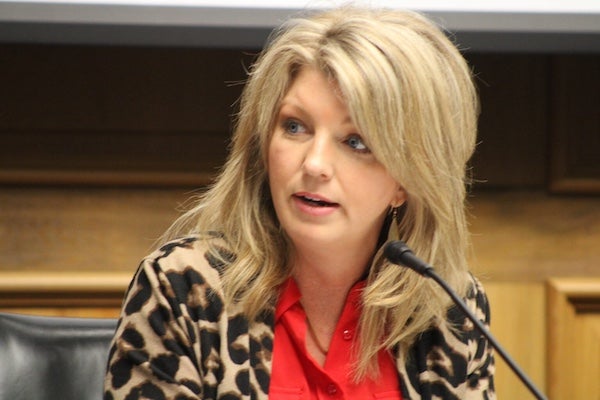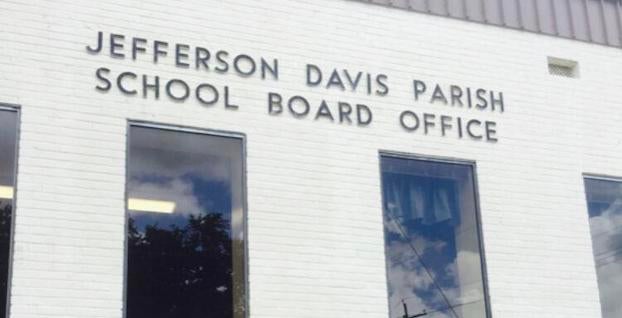Jim Beam column: Public records law under attack
Published 6:51 am Saturday, April 20, 2024

- Louisiana state Sen. Heather Cloud, R-Turkey Creek, is author of a bill that would close from public view most government information now protected under the Public Records Act.(Photo courtesy of The Louisiana Illuminator).
Louisiana citizens this week got a clear idea of exactly what Republican Gov. Jeff Landry and GOP legislators who are anxious to do his bidding have in mind when it comes to changing the state’s great public records law.
The simplest explanation about the goal of Senate Bill 482 by Sen. Heather Cloud, R-Turkey Creek, is that it would keep any documents involved in planning government decisions from public view.
The Public Affairs Research Council of Louisiana, a nonpartisan good-government group, has done a good job explaining what organizations and documents come under the heading of public records and public bodies.
PAR said public records include any document that is created, used, or kept to perform the business of a public body, regardless of physical format. Public records include books, papers, letters, maps, pictures, drawings, photographs, and recordings. Public records also include information stored electronically, such as in e-mail and databases.
Public bodies include any government agency, branch, office, department, board, commission, committee, subcommittee or other governing authority at the state, parish, or local level. Private corporations that perform a governmental function may also be considered public bodies.
Cloud’s measure affects all of those bodies and it cleared the Senate and Governmental Affairs Committee with a 6-2 vote — six Republicans for and two Democrats against — which is pretty much how most bills have been decided during the Legislature’s current regular session.
The Advocate in its report on the committee meeting quoted Steven Procopio, president of (PAR), who explained the full meaning of Cloud’s bill.
“There (will be) far-reaching consequences. This is not just the governor’s office — it’s any state agency, any local agency. It is a serious problem,” Procopio said.
The LSU Manship School News Service quoted Procopio who said PAR usually avoids filling out red cards in order to speak in opposition to bills during committee hearings.
However, on Cloud’s bill he said, “But honestly, if I had the option to put in five red cards, I’d do that.”
Landry in a statement issued before the meeting came up with a wild explanation for why he, Cloud and others want to close public records. He said records from government agencies’ deliberations have been “weaponized” to “stifle deliberative speech.” He said that “all public officials” have complained about the law being abused.
“The citizens of this state overwhelmingly chose me for this job to reform failures in state government. This is yet another reform,” Landry said.
As The Advocate correctly pointed out, Landry said nothing during his gubernatorial campaign about changing access to public records. He also said nothing about his plans for a state constitutional convention and changes in the state’s open primary election system.
We have also learned since he took office that some Republican legislators want to give him the power to appoint members of the Supreme Court, the state ethics board, the state Civil Service Commission and chairpersons of most state education and other boards.
Voters haven’t forgotten that Landry refused to appear at most of the gubernatorial forums and other public events with other candidates. We can only remember one major theme of his campaign — he was going to fight crime and New Orleans was his major target.
Like Procopio, Lee Zurik, a journalist for WVUE FOX 8 in New Orleans, gave citizens another reason why Landry, Cloud and others are trying to block public records. Zurik said he files about 450 public records requests every year that produce major investigative stories.
“This isn’t about clearing up the law — this is about blocking the media, and more importantly, blocking your voters, your constituents, from records that they funded,” Zurik said.
Scott Sternberg, attorney for the Louisiana Press Association, offered perhaps the best explanation of Cloud’s legislation.
“This exemption is a repeal of the public records law,” Sternberg said.
The 13 legislators from Southwest Louisiana have pretty much gone along so far with most of what Landry wants to do. However, it’s time for them to tell the governor that this closing of public records is going much too far.
It’s impossible for citizens to cast intelligent votes when they don’t know what their state government is doing.





